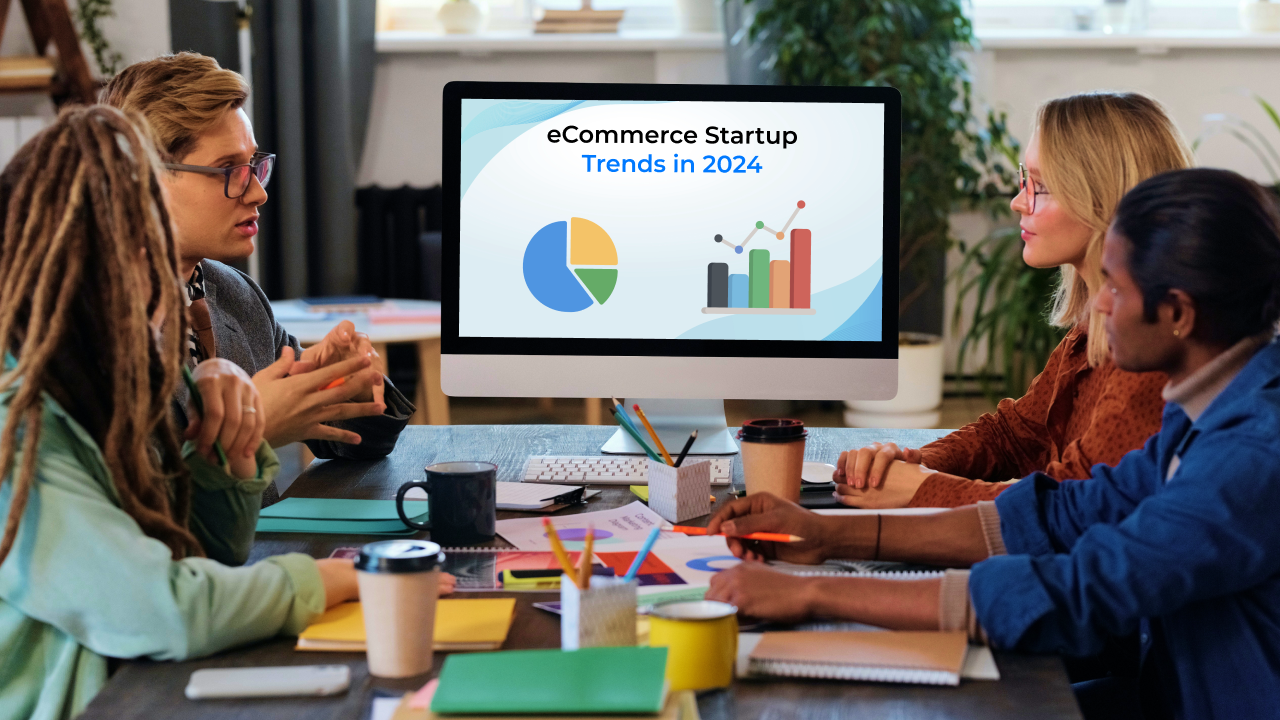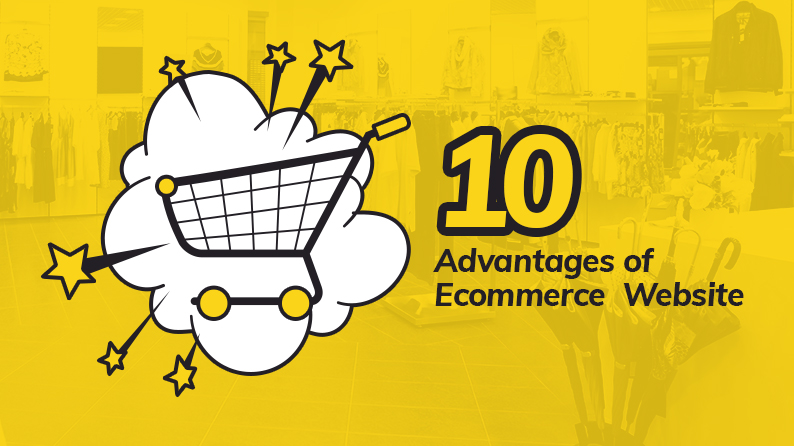Last Updated: 11th January, 2024
As the world continues to shift toward the digital realm, the eCommerce industry is growing at an unprecedented rate. With new technologies, changing customer behaviors, and evolving market dynamics, startups are emerging as powerful disruptors, refining the way we shop online. In 2023, many profitable eCommerce startups have already taken the stage, captivating investors and consumers with their fresh ideas, exceptional offerings, and seamless user experiences.
In this blog post, we will cover every aspect from market growth analysis to emerging eCommerce trends. Plus, we will shine the light on the list of top eCommerce startups to watch for this year who have managed to establish successful ventures. LetÔÇÖs dive in!
Table Of Contents
Analysis of Market Growth & Projections for the eCommerce Sector
The global eCommerce market is seeing a significant expansion, where the number of eCommerce storefronts ranges between 12 to 24 million currently. Further, total sales are projected to reach up to USD 27,147.9 billion with a CAGR of 14.7% by 2027. Another study showcases that by 2040, online purchases will account for 95% of all transactions if eCommerce growth rates persist.
All these improving stats and future predictions are attributed to the potential transformation of the eCommerce industry. This presents a worthwhile opportunity for entrepreneurs to bring their eCommerce business idea to life.
Insights into eCommerce Trends Shaping 2024
With the ever-changing eCommerce landscape, businesses must adapt to the latest trends to stay competitive and meet the ever-evolving preferences of their audience. Here are some trends listed below for 2024.
Live Stream Shopping
Live stream shopping has emerged as the latest trend, captivating audiences with its intriguing blend of entertainment and convenience. Businesses can leverage the interactive, real-time nature of live stream shopping to engage their audience, demonstrate products via live video broadcasts, and drive sales. Moreover, shoppers can ask questions and seek personalized recommendations, creating an immersive shopping experience. Thus, leading to increased customer engagement and conversions.
Social Commerce
Social Commerce is on the rise as it combines the power of social media and eCommerce platforms. With shopping features integrated into the platforms like InstagramÔÇÖs Checkout, products can be effortlessly promoted and sold directly to users, enabling online transactions. This innovative approach allows eCommerce retailers to shorten customer journeys, boost conversions, and foster stronger customer loyalty.
Voice Search
According to Narvar, 51% of significant shoppers utilize voice search to browse items. 36% of shoppers employ voice search to conveniently add relevant items to their favorites, saving valuable time. These stats clearly depicts the growing prominence of voice search that will extend its influence beyond 2023. Hence, it becomes imperative to prioritize platform optimization for voice-based queries and cater to shoppers who prefer contactless alternatives.
Sustainable Development
The rise of sustainable development in eCommerce reflects the surging consumer demands for environment-friendly and socially accountable products and practices. As a result, retailers can focus on sustainable manufacturing and packaging for reduced carbon footprint. Further, embracing sustainable development in eCommerce will help stay aligned with consumer values. Thus, fostering retailers for long-term success while making a meaningful societal impact.
Personalization
The consumer demand for personalized shopping experiences is increasing each day. Here, personalization comes as a key trend that involves tailoring products, services, and experiences to individual customersÔÇÖ preferences and needs. Entrepreneurs can leverage customer data such as browsing history and purchase behavior to offer personalized recommendations, targeted advertising, and customized email marketing. This eCommerce trend will continue to evolve in the near future, helping retailers build a competitive edge in the dynamic eCommerce landscape.
Read to know more about: Disruptive eCommerce Trends to be Considered in 2024.
Key Metrics for Successful eCommerce Startups
eCommerce startups must consider the below-given key factors to differentiate themselves from competitors and build a strong foundation for long-term growth.
- Addressing Pain Points: Understanding and addressing the pain points of customers is crucial. By offering products or services that solve specific problems or fulfill unmet needs, startups can attract and retain customers.
- Incorporating the Right Business Model: Selecting the appropriate business model is vital. It should align with the target audience and market dynamics. Whether it’s B2B, B2C, drop shipping, or subscription-based, the chosen model should support sustainable growth and profitability.
- Strong Marketing & Branding: Effective branding and marketing strategies help attract customers and build brand recognition. Entrepreneurs should invest in targeted marketing campaigns, SEO optimization, social media presence, and user-generated content to increase visibility and customer engagement.
- Leveraging the Right Technology: Adopting the right technology stack is crucial for seamless operations and customer experience. This includes user-friendly website design, secure payment gateways, and data analytics tools to gain insights and make informed business decisions.
Must read: Why Startups Fail? Addressing the Top 5 Reasons
Influential eCommerce Startups to Look for in 2024
Now, let us discover our curated list of eCommerce startups to watch for, their offerings, how they are raising funds, and how they are leveraging the trends to succeed.
Cazoo: Online Automotive Marketplace Revamping Car-Buying Experiences
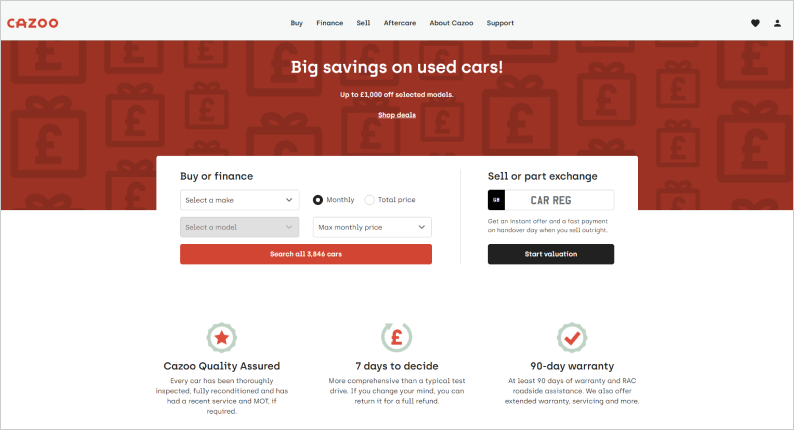
About Cazoo
Cazoo is a UK-based startup founded in the year 2018 by Alexander Edward Chesterman OBE that has swiftly emerged as a major player in the eCommerce automotive industry. The marketplace offers an extensive selection of fully-reconditioned and pre-owned cars, providing a seamless car selling and buying experience. Additionally, Cazoo provides a range of services such as financing options, part-exchange opportunities, and a 7-day money-back guarantee, enhancing their customer-centric approach.
How Did Cazoo Raise Funding?
CazooÔÇÖs rapid rise has been accompanied by notable achievements and partnerships. In the year 2022, they secured significant funding in a Series E round of $630 million from leading Viking Global Investors, resulting in total funding of $1.19 billion. This financial backing has enabled Cazoo to expand its operations and establish strategic collaborations in the EU and UK.
Key Factors Behind CazooÔÇÖs Success
- Simplified Buying and Selling Process: Cazoo allows customers to explore a wide range of vehicles from different brands and compare prices, delivering a convenient and end-to-end online car buying experience. Car-selling experience is equally hassle-free with free valuations and comprehensive paperwork assistance provided by the platform.
- Quality Assurance: CazooÔÇÖs commitment to rigorous quality control through a comprehensive 150+ point checklist instills confidence in customers, aiming at providing reliable and high-quality vehicles.
Snackpass: Go-To Platform for Convenient Food Ordering and Pickup
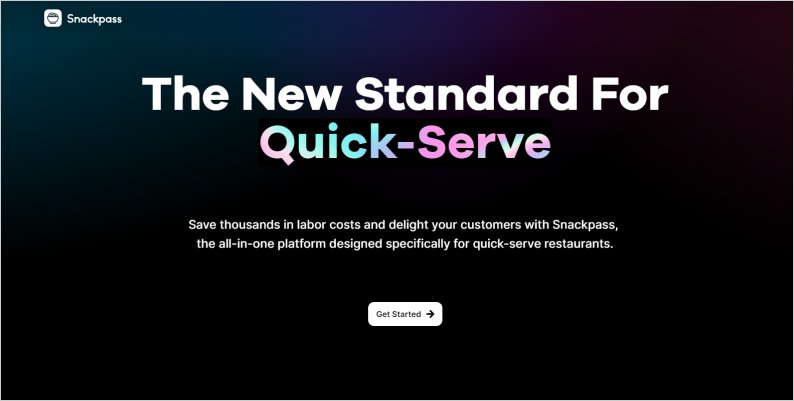
About Snackpass
Snackpass is a rapidly growing startup that emerged in 2017 in San Fransico, California. Founded by Kevin Tan, Jamie Marshall, and Jonathan Cameron, Snackpass began as a simple mobile ordering platform for students, providing a convenient way to order and pick up food from local restaurants. The platform is specialized in takeout or pick-up orders and has a social commerce layer. It facilitates online transactions and effectively bridges the gap between customers and their favorite eateries for seamless and engaging ordering experiences.
How Did Snackpass Raise Funding?
Snackpass has achieved notable milestones since its inception. In the year 2018, Snackpass secured its initial funding of $100,000 from investors including Y Combinator. In May 2018, it raised an additional $2 million in a second seed funding round. The momentum continued as the company attracted significant investment, raising $21 million in a Series A funding round led by Andreessen Horowitz in December 2019. Snackpass further strengthened its financial position in June 2021, raising $70 million in a Series B funding round. All this cumulatively brought total funding to an impressive $93.1 million.
Key Factors for SnackpassÔÇÖs Success
- Group Ordering Discounts: Snackpass has a group ordering feature that brings a social aspect to conveniently order pick-up or takeout food. A squad of friends can order together in bulk and access amazing discounts, capturing a large group of users at once.
- Loyalty Rewards: Snackpass allows users to earn loyalty and gift points on every order. These points unlock cost-saving opportunities for users plus encourage them to refer their friends to the platform using points that lets the user buy gifts for their friends. It helps Snackpass expand its network and customer base.
Verishop: Online Marketplace for Luxury Essentials

About Verishop
Verishop is an innovative eCommerce startup founded in 2018 by Imran Khan and Cate Khan. The platform sets it apart by focusing on offering a wide range of premium products across various categories, including fashion, beauty, home decor, and electronics. Verishop focuses on high-quality and authenticity, partnering directly with trusted brands to deliver genuine products to consumers. The main emphasis is to provide a trustworthy platform where customers love to shop and gets their everchanging demands fulfilled at their leisure.
How Did Verishop Raise Funding?
In terms of funding, Verishop has received considerable investment from various venture capital firms. In its initial funding round in 2019, the company raised $31 million and it has since secured additional funding to support its growth and expansion plans. In the series B funding round in the year 2022, it surged to $40 million from Lion Capital, raising total funding to $57.5 million.
Key Factors for VerishopÔÇÖs Success
- Social Networking Tools: Verishop has its own set of in-built social networking tools. These heavily rely on video product reviews.
- Affordable Pricing Structure: No listing fees or monthly fees is asked. Vendors have to pay only when they make a sale ranging from 10-15 percent based on the product category.
Leverage The Benefits Of A Complete No-Code Marketplace Builder
Brandless: The Wellness Marketplace for Health-Conscious Consumers
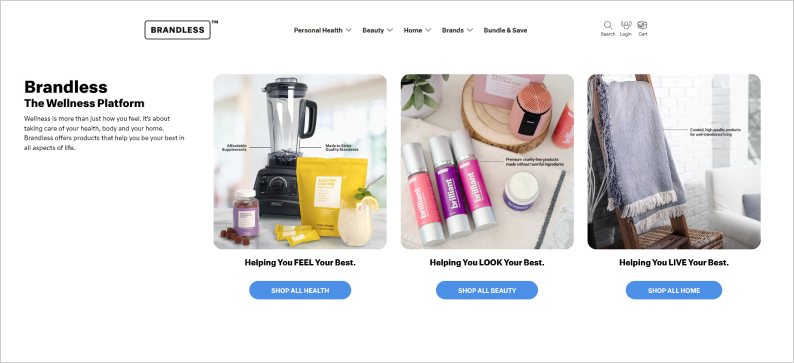
About Brandless
Brandless, founded in 2017, is a revolutionary startup that aimed to disrupt the traditional retail industry. The brainchild of Tina Sharkey and Ido Leffler, Brandless was built on the concept of offering high-quality, everyday essentials spanning various categories such as personal care, food, household items, and more at affordable prices. Their product lineup further included organic and non-GMO food options, cruelty-free personal care items, and environment-friendly cleaning supplies.
How Did Brandless Raise Funding?
The Brandless startup gained significant attention and secured notable achievements and partnerships within a short span of time. In 2021, the company raised $240 million in funding from prominent investors including NEA and SoftBank Vision Fund. This helped fuel their growth and expand their product offerings. Additionally, Brandless forged partnerships with influential organizations like Feeding America, where for every purchase made, the company donated a meal to those in need.
Key Factors of BrandlessÔÇÖs Success
- Transparent Sourcing: One factor is their commitment to transparently sourcing products, prioritizing organic, sustainable, and ethically produced goods.
- Fair Pricing: Brandless operated on a direct-to-consumer model, cutting out intermediaries to provide high-quality products at reasonable costs than the traditional stores.
Klarna: Transforming the Landscape of Digital Transactions
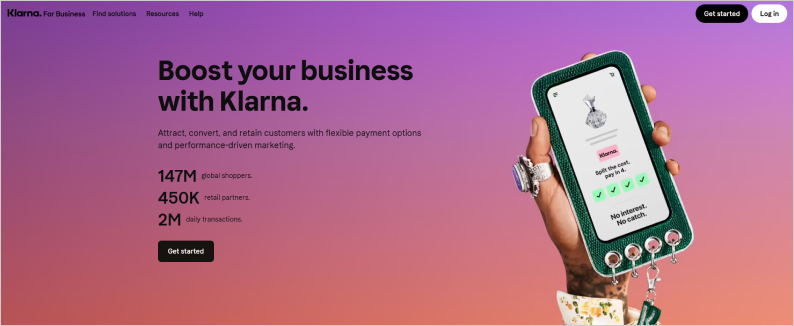
About Klarna
Klarna, founded in 2005 in Stockholm, Sweden, is a fintech startup that revolutionized the eCommerce industry with its innovative ÔÇ£buy now, pay laterÔÇØ model. The founders, Sebastian Siemiatkowski, Niklas Adalberth, and Victor Jacobsson aimed to simplify the online shopping experience. Klarna provides a seamless and convenient online shopping experience, offering direct payments, pay-after-delivery options, and interest-free installments. Thus, empowering customers to choose their preferred payment method and schedule.
How Did Klarna Raise Funding?
KlarnaÔÇÖs success has been marked by several notable achievements and partnerships. The company has amassed a significant customer base, with over 150 million active users across 45 countries. In terms of funding, Klarna has secured substantial investments of $4.09 billion. The recent funding was $800M with notable rounds led by investors such as Sequoia Capital, Silver Lake, and Ant Group. Furthermore, the startup has forged strategic partnerships with major retailers such as ASOS, H&M, and more, solidifying its position as a trusted payment solution provider.
Key Factors for KlarnaÔÇÖs Success
- Merchant Partnerships: Klarna has established strong partnerships with global retailers, offering a win-win situation for increasing sales for merchants while providing trusted and convenient payment solutions for customers.
- Strong Brand Reputation: The platformÔÇÖs commitment to customer satisfaction, transparency, and trustworthiness has earned it a strong reputation. Thus, driving customer loyalty, and attracting new users.
Launch a User-Friendly Automobile Marketplace Like AutoTrader
Conclusion
The list can continue as many newly established businesses are performing well in varying niches. However, the success of all such startups is driven by placing customer needs at the forefront and harnessing the potential of eCommerce trends. So, always seek valuable insights and keep an eye on the strategies of booming eCommerce startups to tap into the eCommerce realm. It will both keep you abreast of market dynamics and help build a competitive edge. If you need assistance, you can consult our experts at Yo!Kart. They can help build a startup like those mentioned above and let you set your foot in a thriving eCommerce industry.
